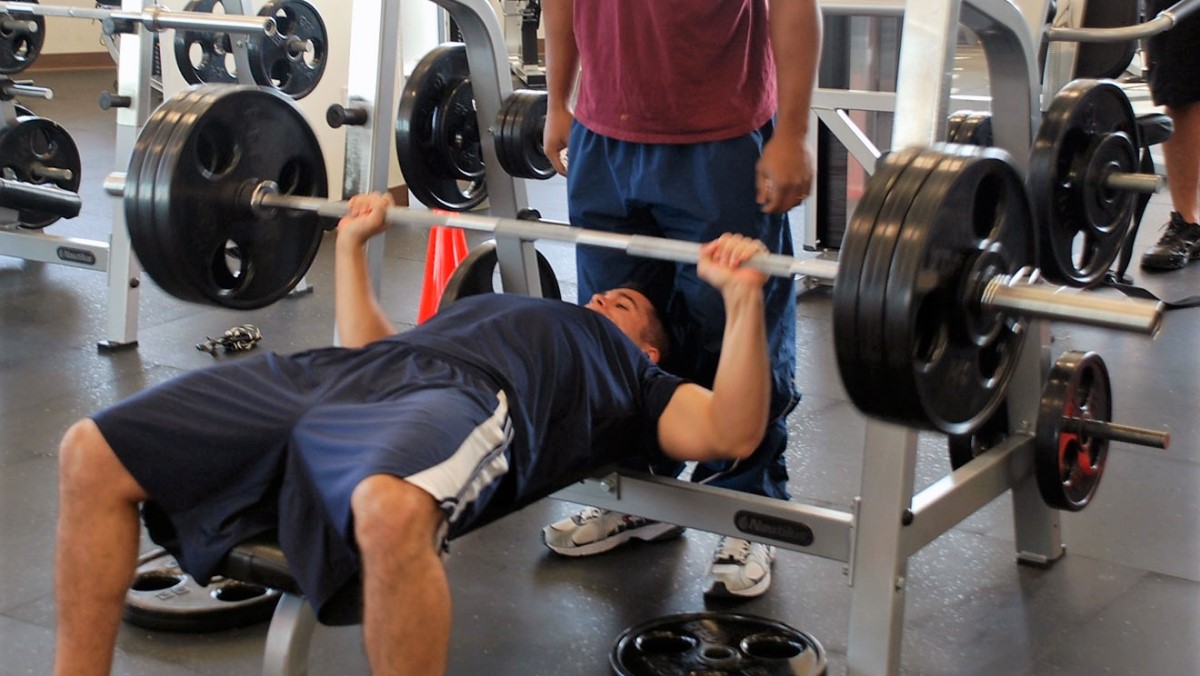Always add the weight of the bar when tracking your lifts. Here’s how to find out how much it weighs.
Table of Contents
Olympic Barbells
Normally an olympic style 7ft long bar on the bench press rack weighs 44 lbs or 45 lbs. 44 lbs is common because of the conversion from kilograms for international usage. 20kg = 44lb.
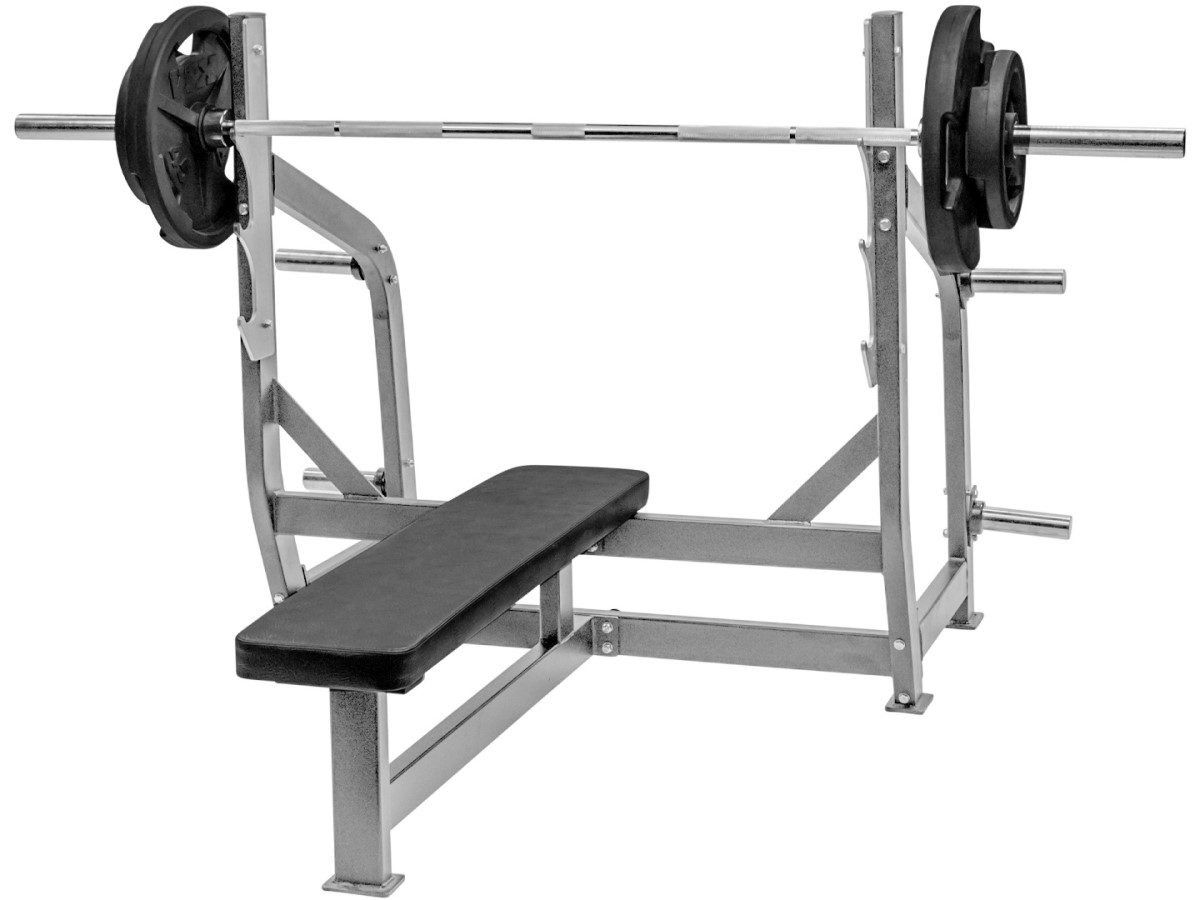
Standard Barbells
A “standard” bench press barbell is a type made only in the US and not for international or competition purposes. These are made for beginners at home because of the weaker steel. Mainly they’re bought in the cheapest possible barbell set for kids and beginners whose dedication to continuing to lift heavier weights is questionable.
The entire barbell, from the middle shaft to the ends, is 1″ diameter. The ends may or may not be threaded to take spin-lock collars to hold weight plates on.
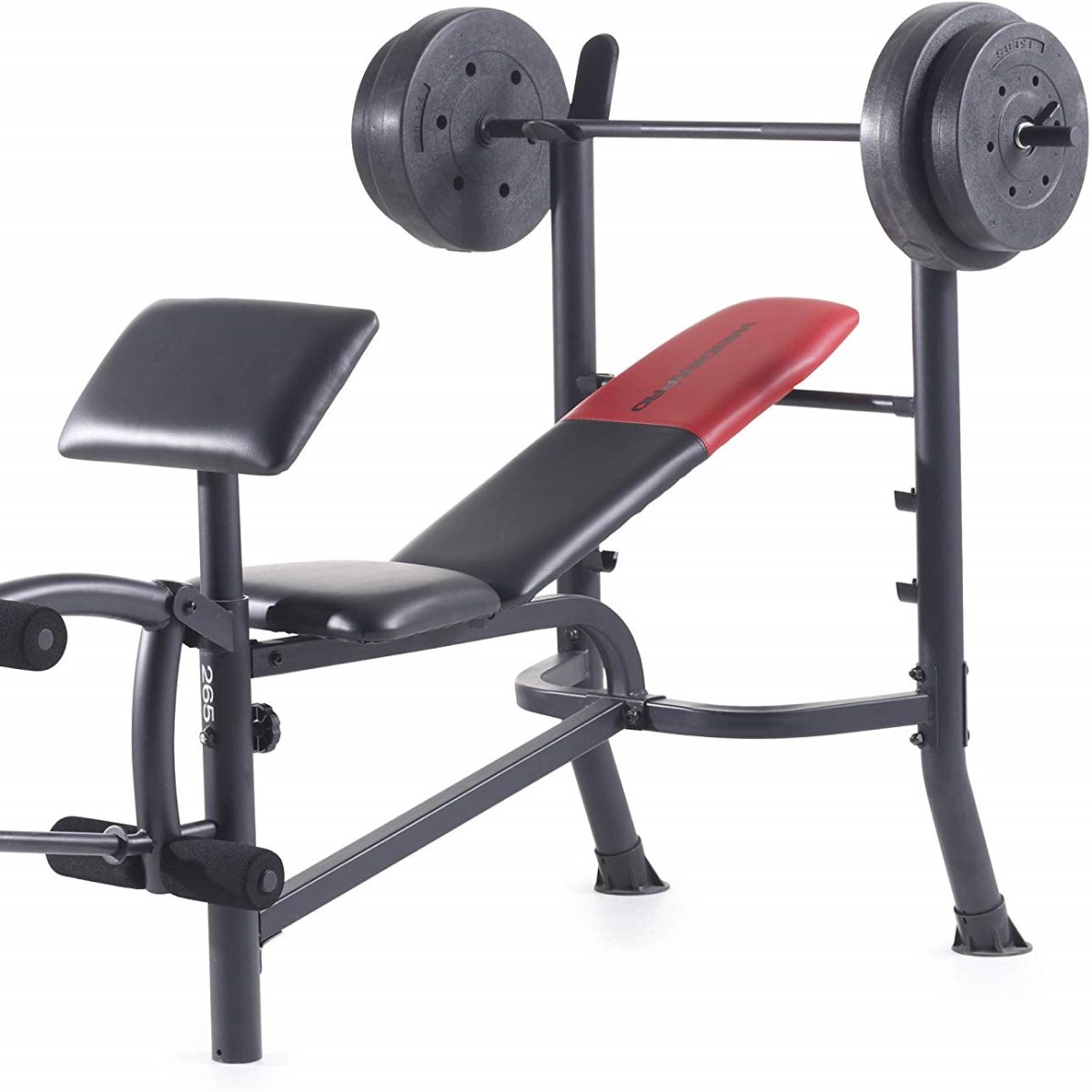
They also are lighter in weight. A standard barbell could weigh around 13 lbs (5ft long) to 19 lbs (7ft long). This will vary between brands.
That’s all I’m going to say in this post about standard 1″ barbells. It’s a crapshoot. You just have to weigh it if you really want to know.
For other considerations with olympic barbells, read on…
Does it Have an End Cap?
You might be fortunate, and the barbell has a weight-labeled end cap like this.
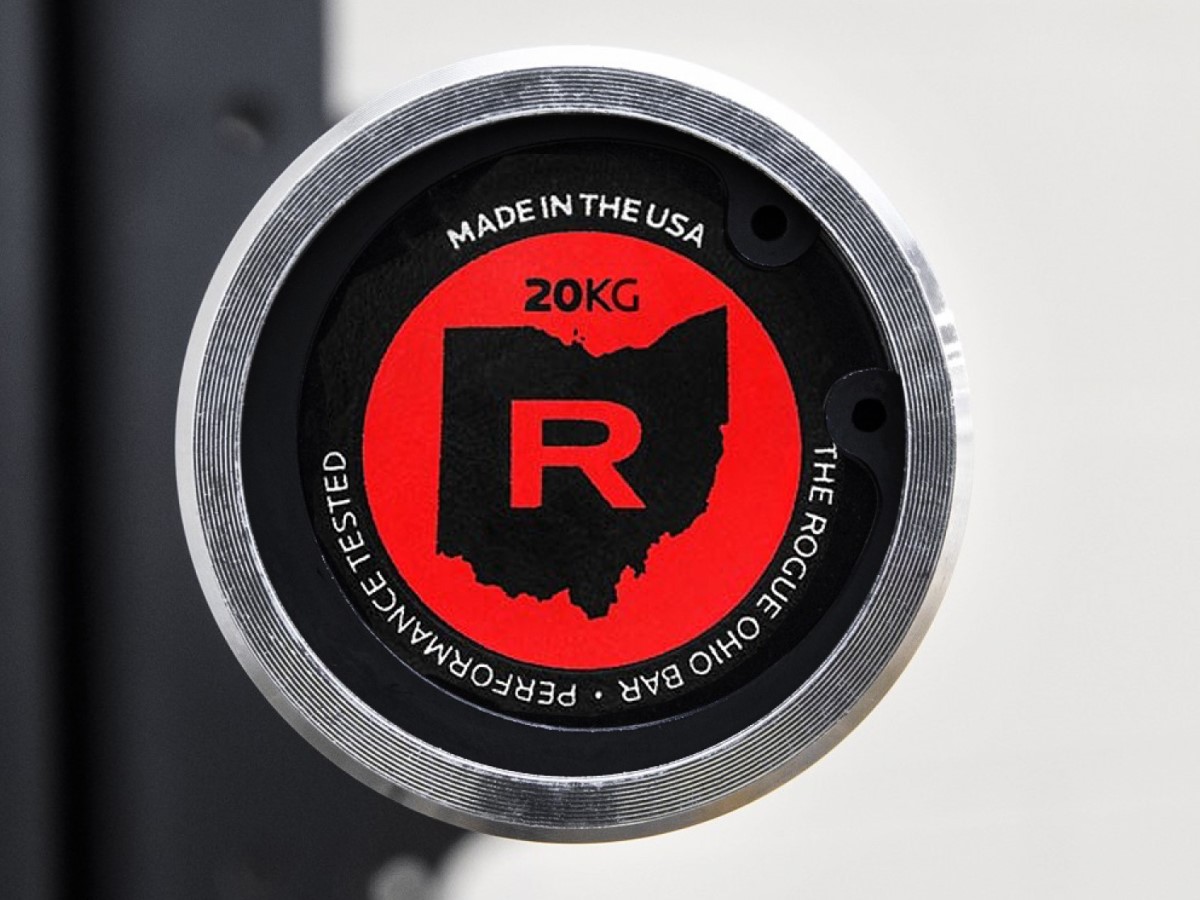
Easy peazy, 20kg = 44lb.
Only a decent quality barbell includes an end cap like this, and you can be sure that it weighs exactly what it says, within an ounce. The sleeve length is machined down to be calibrated to the correct weight in these cases.
Check the Length
There are certain specifications that barbells are made to. Checking the length very often tells you the weight.
Check the barbell length against your height or armspan (which, if you didn’t know, is usually pretty close to your height). If an olympic bar appears to be roughly 7ft long, you can figure it’s most likely a 44lb or 45lb bar as mentioned in the first section above.
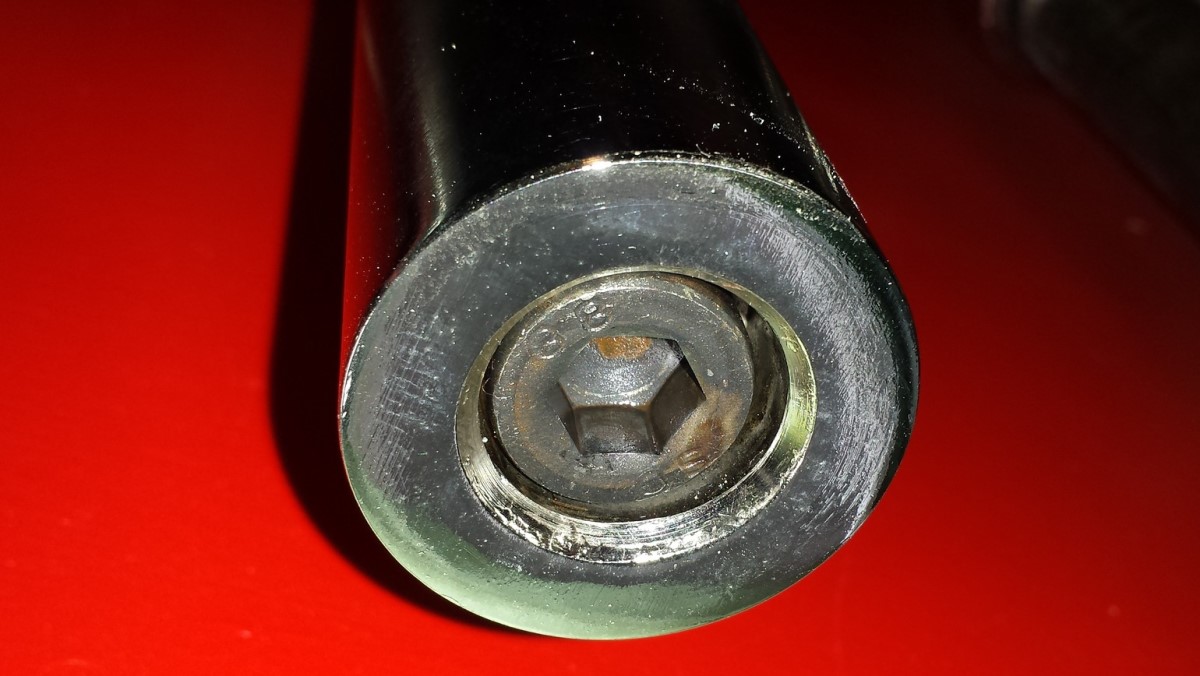
That is not always the case. A cheaper bar, identified as such by the big hex bolt on the end, like the above, could possibly weigh less, somewhere between 40 lbs and 45 lbs.
A 5ft or 6ft olympic bar is probably a cheap bar that might weigh around 25-30 lbs. Normally something that size wouldn’t be used on a bench press in a commercial gym. Even in home gyms they’re becoming less common, because of the way power racks are being used more often that require a longer bar.
A 6.5ft olympic bar with a noticeably thinner shaft is likely a women’s bar, which has a 1″ (25mm) shaft to better fit a woman’s hands instead of a 28mm or thicker shaft. The thickness difference isn’t always obvious visually but is obvious to the touch for anyone who has been around bars enough. This kind of bar is almost always calibrated to 15kg / 33lb. It’s perfectly fine for both men and women to use, if the thinner shaft is comfortable to you. This kind of bar is not really ideal for bench pressing because of the thin shaft that digs into your hands. It’s made for the clean-and-jerk and the snatch, the two official olympic lifts that involve explosive pulling movements for which a thick shaft is too difficult.
Put it On a Scale
If it comes down to it and you’ve got to know what the exact weight is, find out for sure.
Balance it on a gym scale or bathroom scale and find out for sure. Sure, you might get looks at the gym, but who cares. You’re gaining valuable information. You might even be able to sneak it into the locker room if that’s where the only scale is.
Final Thoughts
Sometimes people want to weigh their bar because they suspect something is off. They find that they can’t lift as much in their home gym as they can at a commercial or college gym.
It might not be the bar weight that’s an issue. It might be the shaft thickness of the bar. For pressing movements like the bench press, a thick 30mm or 32mm shaft is ideal. It doesn’t dig into your palms as much, feels more comfortable for pressing for men and women alike, and you get the feeling that it’s less weight just because it’s easier overall.
Or it could be the weight plates. Low quality plates are not calibrated. They could be 5% off or more. The iron casting process naturally causes some variation in the weight for a plate of given dimensions, or they have to remake the cast and it’s not exactly the same as before. To be sure the plates weigh the right amount, and be able to advertise it as a guarantee, they have to machine the face of the plates down until it’s just right, and then someone has to weigh a portion of them to be sure. This is all quite possible to do, but it jacks up the cost of production considerably. Garden variety plates are made in the cheapest way possible to the point where they look decent, seem like a great price, but they don’t weight what they say they do.
Any issues you’ve run into with off-weight barbells? Leave a comment below!

